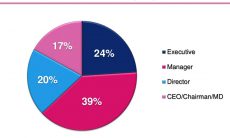The world has changed dramatically in the past 10 years or since the 2008 recession. Economic and job growth is coming less from traditional industries or big corporations, but more from entrepreneurial startups. Historically, this involved business entrepreneurs, but today, it is the social entrepreneur that has taken center stage. A key driver for this trend is the emerging values of millennials and purposeful branding.
More and more, consumers are buying brands not just for what it does, but also what a brand or the parent company stands for–e.g. a purpose beyond profit or how it can improve the lives of its customers. The concept of purposeful branding is even evident in the banking industry; Ashok Vaswani, the CEO of retail and business banking at Barclays, recently stated that “every business must serve a social purpose.”
Consumer product companies seem to leading this trend. For example, the purpose behind brands from Procter & Gamble is to “touch and improve more consumers’ lives.” Other examples include the Dove brand, which is all about helping to improve the self-esteem of girls worldwide; Starbucks, known for its bold social responsibility initiatives; and The Body Shop, the successful cosmetics company with all natural products that reflect their purpose, “enrich, not exploit.”
Wikipedia defines social entrepreneurship as “the use of techniques by startup companies and other entrepreneurs to develop, fund and implement solutions to social, cultural, or environmental issues.” While business entrepreneurs typically measure their performance with metrics like profits, revenues, and stock prices, social entrepreneurs are more concerned with generating a positive “return to society” and therefore use different metrics. This idea of doing something good for society has been especially embraced by millennials who empower this rise of social entrepreneurship.
Contributing to the growing popularity of social entrepreneurship is the public’s hunger for superheroes fighting injustice, poverty, and other social evils. Today digital media quickly spreads stories about their intoxicating quests, with support often from celebrities, philanthropists, and increasingly funding agencies.
These overpowering trends will have a huge impact on business and society in the future, and the implications can be best understood when recognizing the basic “who, why, and how” behind this transformative phenomenon:
• Millennials – this generation is not only the main growth engine behind the emergence of entrepreneurship (they have already launched twice as many companies compared to the baby boomer generation), but will also be the primary customers for most businesses in the future. They will make up 75% of the workforce in the U.S. by 2025, for example. This segment has recognized that the same jobs lost in the 2008 recession will never come back. Instead, they view traditional business as chaotic, distrustful, and unreliable for keeping contracts or promises.
• Values – this generation feels people are more important than profits. They are socially conscious, especially about protecting the environment and creating a business that is environmentally sustainable. It is more than an attitude. Social and environmental responsibility will be a primary motivator for not only creating a competitive point of difference for a new business, but even more importantly, a compelling reason why future customers (especially millennials) will select a particular product or service.
• Technology – the internet and social media have made it much easier and less expensive to start a company, scale the business, and work from (or reach) anywhere around the world. Importantly, the primary target customers for many businesses will be millennials who are more familiar with every aspect of the internet than any other generation. In short, digital media will be the key vehicle for reaching customers with relevant, engaging, and purposeful brands and content.
Success for these social entrepreneurs will require more than just a unique new product/service idea, however. Their other challenges will involve assessing the potential in the marketplace, testing for good feedback from prospective customers, identifying competitive differentiation opportunities, positioning the core benefit or value, and creating a strong, memorable brand, all backed up with a solid strategic plan to build the business. Creativity is vital for every stage of business development too. Underlying all these fundamental challenges is the need to truly understand the above trends and how to capitalize on them for a successful entrepreneurial startup.






